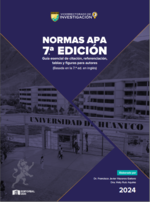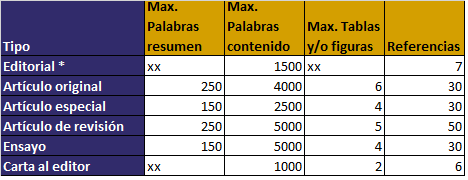Visión transcompleja del currículo en el contexto de la Educación Media General en Venezuela
DOI:
https://doi.org/10.37711/desafios.2023.15.1.412Palabras clave:
Currículo, educación media, transversalidad, transdisciplinariedadResumen
Esta indagación se propone realizar un análisis de la transversalidad como teoría curricular a partir de la relación educación-tranversalidad en el currículo y algunas consideraciones sobre la transdisciplinariedad en la educación media. El proceso se inició con una revisión de textos relacionados con el tema a desarrollar, la búsqueda de relaciones entre esos aspectos y cuáles serían sus implicaciones en la realidad educativa venezolana. Los ejes transversales repercuten en la práctica pedagógica vitalizando el proceso educativo, facilitando la imbricación de los contenidos desde lo inter y transdiciplinario. Por efectos de la globalización, el sujeto de aprendizaje tiene a su disposición mucha información, lo cual puede ocasionar la banalización de los aprendizajes que han de adquirirse en la formación. Es necesario la adopción de modelos educativos más cónsonos con la realidad actual y con las motivaciones de los jóvenes y adolescentes, con miras a una educación más pertinente, de calidad.
Descargas
Citas
Aguilera, O. (s.f.). Retos epistemológicos a la administración en la globalización contemporánea. https://gestiopolis.com/retos-epistemologicosadministracion-globalizacion-contemporanea/
Anes, A., Astier, A., Bastien, J., Berger, R., Bienchi, F., y Blumen, G. (1994). Carta de la Transdisciplinariedad. https://www.ceuarkos.edu.mx/wp-content/uploads/2019/10/carta.pdf
Castro Díaz-Balart, F. (2002). Cuba. Amanecer del Tercer Milenio. Debate.
Claudia Cortés, C., y Puga, JdJ. (2015). La Transversalidad Como Estrategia Curricular En La Formación Del Estudiante Universitario [Tesis de pregrado, Universidad Autónoma de Nayarit]. https://www.ecorfan.org/proceedings/CDU_II/CDUII_7.pdf
Cortés, C & Puga, Jdj. (2011). La Transversalidad como estrategia curricular en la formación del Estudiante Universitario. Universidad Autónoma de Nayarit.
Flen-Bers, M. (2016, 12 de octubre). Las áreas de formación. El Blog de Melba Flen-Bers. https://melbaflenbers.wordpress.com/2016/10/12/las-areas-de-formacion/
García Palacios, E.; González Galbarte, J., López Cerezo, J.; Luján, J.L; Martín Gordillo, M.; Osorio, C. y Valdés, C. (2001). Ciencia, tecnología y sociedad: una aproximación conceptual. Organización de Estados Iberoamericanos.
Lanz, C. (1998). Reforma Curricular y Autoformación del Docente Investigador. Red nacional de investigación-acción Simón Rodríguez. Ministerio de Educación de Venezuela. (1997). Currículo Básico Nacional. Programa de Estudio de Educación Básica Primera Etapa. Unidad
Coordinadora de Programas con Organismos Multilaterales (UCEP).
Ministerio del poder popular para la Educación. (2017). Áreas de formación en Educación Media General. https://www.icsspe.org/system/files/Venezuela%20
P E % 2 0 C u r r i c u l u m % 2 0 R e f o r m % 2 0 % 2 0%C3%81REAS%20DE%20FORMACI%C3%93N%20EN%20EDUCACI%C3%93N%20MEDIA%20GENERAL.pdf
Montes Mata, K., Marín Uribe, R., Muñoz Beltrán, F., y Soto Valenzuela, M. (2019). Transversalidad y transdisciplina: la planifcación docente en la educación superior. Revista Publicando, 6(20), 35-49.
https://revistapublicando.org/revista/index.php/crv/article/view/2027
Morin, E. (1994). Introducción al pensamiento complejo. Barcelona: Gedisa
Paoli Bolio, F. J. (2019). Multi, inter y transdisciplinariedad. Problema anuario de flosofía y teoría del derecho, (13), 347-357. https://doi.org/10.22201/iij.24487937e.2019.13
Torres, R. M. (1988). Globalización e interdisciplinariedad: el curriculum globalizado (3ª ed.). Morata.
Yentzen, E. (2003). Teoría general de la creatividad. Polis, Revista de la Universidad Bolivariana, 2(6). https://www.redalyc.org/pdf/305/30500612.pdf

Publicado
Cómo citar
Número
Sección
Licencia
Derechos de autor 2023 Gilberto Resplandor

Esta obra está bajo una licencia internacional Creative Commons Atribución 4.0.
a. Los autores conservan los derechos de propiedad intelectual (copyright) de las obras publicadas, cediendole a la revista el derecho de primera publicación.
b. Los autores retienen sus derechos de marca y patente, y también sobre cualquier proceso o procedimiento descrito en el artículo.
c. Los autores retienen el derecho de compartir, copiar, distribuir, ejecutar y comunicar públicamente el artículo publicado en la RD (por ejemplo, colocarlo en un repositorio institucional o publicarlo en un libro), con un reconocimiento de su publicación inicial en la RD.
d. Los autores retienen el derecho a hacer una posterior publicación de su trabajo, de utilizar el artículo o cualquier parte de aquel (por ejemplo: una compilación de sus trabajos, notas para conferencias, tesis, o para un libro), siempre que indiquen la fuente de publicación (autores del trabajo, revista, volumen, número y fecha).
























